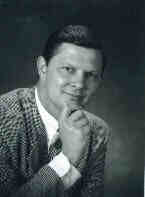Life is a series
of problems. Discipline is the basic set
of tools we require to solve life’s problems.
Without disciplines we can solve nothing, with discipline we can solve
all types of problems.
Life is
difficult, this is true. Many have complained that “Life isn’t fair.” I simply reply, who said the life was
supposed to be fair? What makes life
difficult is solving problems is very painful.
Problems evoke in us a great deal of emotional pain, such as sorrow,
fear, anger, anxiety, sadness, etc.
These are uncomfortable emotions.
It is in meeting and solving problems that life takes on a greater
meaning. Since life invokes a series of
problems, life also unleashes a series of pain.
Problems are the
cutting edge that distinguishes success and failure. Problems are what cause us to grow mentally
and spiritually. Without growth, we’re
doomed to stay as we have always been. Wise
people learn not to dread problems, but to welcome and expect problems. Fearing the pain involved from problems
causes most people to avoid problems.
Most people do anything to attempt to avoid confronting problems. They avoid problems because they wish to
avoid pain.
Avoiding problems
is the root to all psychological, emotional and mental illness.
Most who avoid problems build elaborate fantasies to hide
behind or live within the false sense of protection. Those who create such fantasies also escape
reality. Psychoneurosis is a substitute to
legitimate suffering. But the substitute
becomes more of a suffering than the pain one seeks to avoid.
Then people will
build another layer upon layer of fantasy to avoid the emotional instabilities,
pretending everything is alright. In
avoiding the problem, we stop growth which we learn from the problems that life
brings. Therefore, we avoid real life
for the replaced fantasy. When we stop
the growth, we also stop the healing we could have attained if we faced our
problems and pain with proper responses.
When we stop growing, we also stop the very meaning and purpose that
problems can bring to us.
Problems are a
part of real life. Avoiding problems is
our attempt to avoid true life’s learning opportunities. True emotional and
spiritual health comes from acknowledging that life is full of problems. And with this truth, we discover the tools to
dealing with these problems. The tools
we must discover is found inside discipline.
When we develop discipline within every area of our life, we also
develop the tools we shall need to successfully confront and overcome all
problems.
© 2012 by Dr Tim McClure
